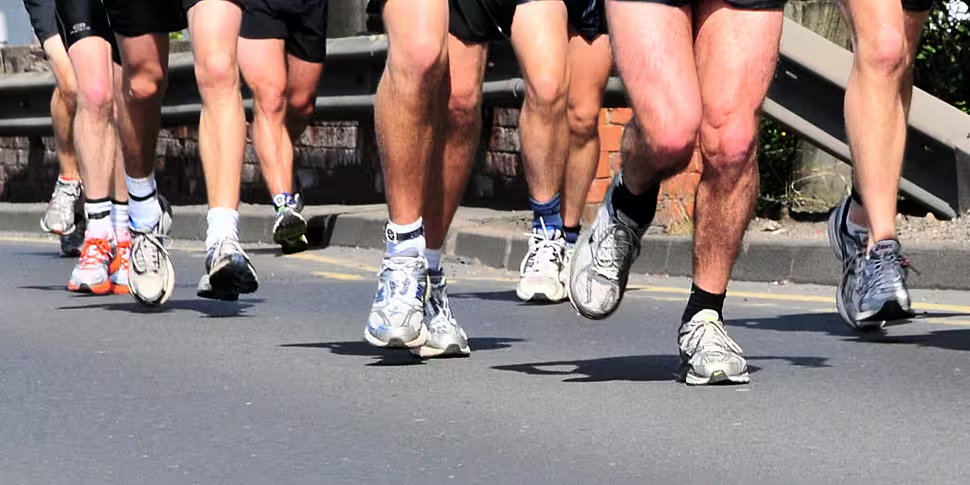New research suggesting running marathons could age men by a decade shows that being fit and competitive is “not the same as being healthy”.
The study, presented at the British Cardiovascular Society (BCS) conference in Manchester this week, found that men who regularly take part in endurance events can end up aging their cardiovascular system.
The study examined over 300 ‘masters’ athletes that regularly take part in marathons, triathlons and cycling events.
Men above the age of 40 who had taken part in more than ten of the events were found to have a vascular age ten years older than their chronological age.
"Too hard, too often"
On The Hard Shoulder this evening, Sports Scientist and Personal Trainer Dominic Munnelly said exercise is good for your heart – but too much of a good thing can be damaging.
“The optimum amount of running for health would be around 16k to 30k a week in terms of the distance,” he said.
“Like with a lot of things in life, if you do it too hard, too often, with not enough recovery, then a lot of the benefits are lost.
“I think what a lot of people tend to make the mistake in doing is they equate being fit with being healthy. It is not the same thing.”
Here’s the @TEDTalks I mentioned on @TheHardShoulder earlier also - https://t.co/PVq6QPHTu6 pic.twitter.com/vb4MpVuRfz
— Dominic Munnelly - this is the way (@dominicmunnelly) June 7, 2022
The study, which has yet to be peer-reviewed, found very different impacts on male and female endurance athletes.
While men who regularly took part in the events aged their vascular system by ten years, women actually saw a health boost – with their vascular ages found to be six years younger than their actual age on average.
Training
Mr Munnelly said the best way to approach training is through the polarised model – which involves 80% at a low to moderate intensity and 20% at high-intensity.
“What can happen with people who are pushing on for marathons is they’re working at too high a capacity too often,” he said.
“Or they’re living in the ‘black hole of training’ which means they’re doing a lot of their training sessions in the middle part – in that 70% to 85% zone where they’re not training light enough to be a light session and they are not training hard enough for a hard session.”
Marathon men
He had a novel theory for why men are more impacted than women.
“Men can’t follow instructions in general when it comes to doing something like that with their health,” he said.
“Men tend to think, I’m going to do it my way because the most miserable way possible must be producing better results.
“Also, we need to remember that where competition starts is where health ends. We shouldn’t equate something that is a very competitive activity with something that is going to be healthy.
“As soon as you veer into that competition side of things, we have to accept it is no longer healthy and if you want to do it in a more healthy way you need to take a more moderate approach.”
I mentioned this series with @NewstalkFM I did with @andreagilligan while I was on today. Here’s the link you need - https://t.co/82MLMoDF4S pic.twitter.com/INzPYDpbo0
— Dominic Munnelly - this is the way (@dominicmunnelly) June 7, 2022
He noted that exercise cardiovascular exercise and “anything that’s going get the heart rate up” is good for your health – provided you don’t overdo it.
The study carried out by University College London and two British hospitals examined over 300 “masters” athletes, including an equal number of men and women.
The athletes were all people over 40 who had taken part in more than 10 endurance vents and exercised regularly for at least 10 years.









